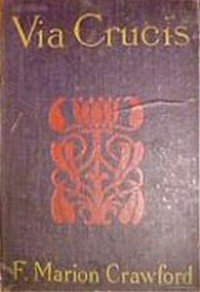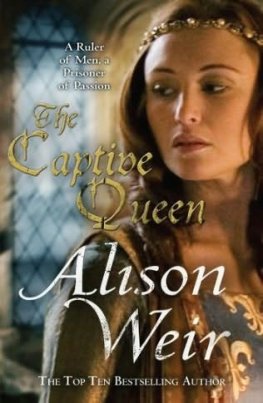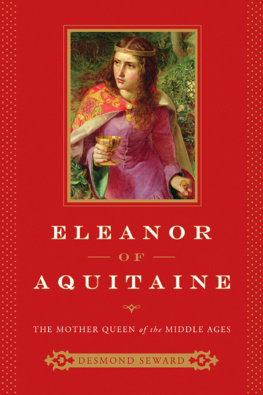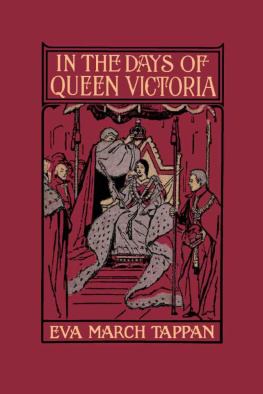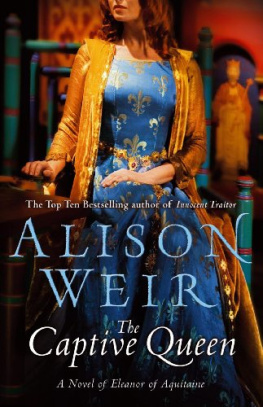F. Crawford - Via Crucis
Here you can read online F. Crawford - Via Crucis full text of the book (entire story) in english for free. Download pdf and epub, get meaning, cover and reviews about this ebook. genre: Adventure. Description of the work, (preface) as well as reviews are available. Best literature library LitArk.com created for fans of good reading and offers a wide selection of genres:
Romance novel
Science fiction
Adventure
Detective
Science
History
Home and family
Prose
Art
Politics
Computer
Non-fiction
Religion
Business
Children
Humor
Choose a favorite category and find really read worthwhile books. Enjoy immersion in the world of imagination, feel the emotions of the characters or learn something new for yourself, make an fascinating discovery.
- Book:Via Crucis
- Author:
- Genre:
- Rating:4 / 5
- Favourites:Add to favourites
- Your mark:
- 80
- 1
- 2
- 3
- 4
- 5
Via Crucis: summary, description and annotation
We offer to read an annotation, description, summary or preface (depends on what the author of the book "Via Crucis" wrote himself). If you haven't found the necessary information about the book — write in the comments, we will try to find it.
Via Crucis — read online for free the complete book (whole text) full work
Below is the text of the book, divided by pages. System saving the place of the last page read, allows you to conveniently read the book "Via Crucis" online for free, without having to search again every time where you left off. Put a bookmark, and you can go to the page where you finished reading at any time.
Font size:
Interval:
Bookmark:
Via Crucis
by F. Marion Crawford
Chapter I
The sun was setting on the fifth day of May, in the year of our Lord's grace eleven hundred and forty-five. In the little garden between the outer wall of the manor and the moat of Stoke Regis Manor, a lady slowly walked along the narrow path between high rose bushes trained upon the masonry, and a low flower-bed, divided into many little squares, planted alternately with flowers and sweet herbs on one side, and bordered with budding violets on the other. From the line where the flowers ended, spiked rushes grew in sharp disorder to the edge of the deep green water in the moat. Beyond the water stretched the close cropped sward; then came great oak trees, shadowy still in their spring foliage; and then, corn-land and meadow-land, in long, green waves of rising tilth and pasture, as far as a man could see.
The sun was setting, and the level rays reddened the lady's golden hair, and fired the softness of her clear blue eyes. She walked with a certain easy undulation, in which there were both strength and grace; and though she could barely have been called young, none would have dared to say that she was past maturity. Features which had been coldly perfect and hard in early youth, and which might grow sharp in old age, were smoothed and rounded in the full fruit-time of life's summer. As the gold deepened in the mellow air, and tinged the lady's hair and eyes, it wrought in her face changes of which she knew nothing. The beauty of a white marble statue suddenly changed to burnished gold might be beauty still, but of different expression and meaning. There is always something devilish in the too great profusion of precious metal-something that suggests greed, spoil, gain, and all that he lives for who strives for wealth; and sometimes, by the mere absence of gold or silver, there is dignity, simplicity, even solemnity.
Above the setting sun, tens of thousands of little clouds, as light and fleecy as swan's-down, some dazzling bright, some rosy-coloured, some, far to eastward, already purple, streamed across the pale sky in the mystic figure of a vast wing, as if some great archangel hovered below the horizon, pointing one jewelled pinion to the firmament, the other down and unseen in his low flight. Just above the feathery oak trees, behind which the sun had dipped, long streamers of red and yellow and more imperial purple shot out to right and left. Above the moat's broad water, the quick dark May-flies chased one another, in dashes of straight lines, through the rosy haze, and as the sinking sun shot a last farewell glance between the oak trees on the knoll, the lady stood still and turned her smooth features to the light. There was curiosity in her look, expectation, and some anxiety, but there was no longing. A month, had passed since Raymond Warde had ridden away with his half dozen squires and servants to do homage to the Empress Maud. Her court was, indeed, little more than a show, and Stephen ruled in wrongful possession of the land; but here and there a sturdy and honest knight was still to be found, who might, perhaps, be brought to do homage for his lands to King Stephen, but who would have felt that he was a traitor, and no true man, had he not rendered the homage of fealty to the unhappy lady who was his rightful sovereign. And one of these was Raymond Warde, whose great-grandfather had ridden with Robert the Devil to Jerusalem, and had been with him when he died in Nicaea; and his grandsire had been in the thick of the press at Hastings, with William of Normandy, wherefore he had received the lands and lordship of Stoke Regis in Hertfordshire; and his name is on Battle Abbey Roll to this day.
During ten years Stephen of Blois had reigned over England with varying fortune, alternately victor and vanquished, now holding his great enemy, Robert of Gloucester, a prisoner and hostage, now himself in the Empress's power, loaded with chains and languishing in the keep of Bristol Castle. Yet of late the tide had turned in his favour; and though Gloucester still kept up the show of warfare for his half sister's sake, as indeed he fought for her so long as he had breath, the worst of the civil war was over; the partisans of the Empress had lost faith in her sovereignty, and her cause was but lingering in the shadow of death. The nobles of England had judged Stephen's character from the hour in which King Henry died, and they knew him to be a brave soldier, a desperate fighter, an indulgent man, and a weak ruler.
Finding themselves confronted by a usurper who had no great talent to recommend him, nor much political strength behind his brilliant personal courage, their first instinct was to refuse submission to his authority, and to drive him out as an impostor. It was not until they had been chilled and disappointed by the scornful coldness of the Empress Queen's imperious bearing that they saw how much pleasanter it would be to rule Stephen than to serve Maud. Yet Gloucester was powerful, and with his feudal retainers and devoted followers and a handful of loyal independent knights, he was still able to hold Oxford, Gloucester, and the northernmost part of Berkshire for his sister.
Now, in the early spring of this present year, the great earl had gone forth, with his followers and a host of masons and labouring men, to build a new castle on the height by Faringdon, where good King Alfred had carved the great white horse by tearing the turf from the gravel hill, for an everlasting record of victory. Broadly and boldly Gloucester had traced the outer wall and bastions, the second wall within that, and the vast fortress which was to be thus trebly protected. The building was to be the work of weeks, not months, and, if it were possible, of days rather than of weeks. The whole was to be a strong outpost for a fresh advance, and neither gold nor labour was to be spared in the execution of the plan. Gloucester pitched his sister's camp and his own tent upon the grassy eminence that faced the castle. Thence he himself directed and commanded, and thence the Empress Maud, sitting beneath the lifted awning of her imperial tent, could see the grey stones rising, course upon course, string upon string, block upon block, at a rate that reminded her of that Eastern trick which she had seen at the Emperor's court, performed by a turbaned juggler from the East, who made a tree grow from the seed to the leafy branch and full ripe fruit while the dazed courtiers who looked on could count fivescore.
Thither, as to a general trysting-place, the few loyal knights and barons went up to do homage to their sovereign lady, and to grasp the hand of the bravest and gentlest man who trod English ground; and thither, with the rest, Raymond Warde was gone, with his only son, Gilbert, then but eighteen years of age, whom this chronicle chiefly concerns; and Raymond's wife, the Lady Goda, was left in the manor house of Stoke Regis under the guard of a dozen men-at-arms, mostly stiff-jointed veterans of King Henry's wars, and under the more effectual protection of several hundred sturdy bondsmen and yeomen, devoted, body and soul, to their master and ready to die for his blood or kin. For throughout Hertfordshire and Essex and Kent there dwelt no Norman baron nor any earl who was beloved of his Saxon people as was the Lord of Stoke; wherefore his lady felt herself safe in his absence, though she knew well enough that only a small part of that devotion was for herself.
There are people who seem able to go through life, with profit to themselves, if not to others, by a sort of vicarious grace arising out of the devotion wasted on them by their nearest and dearest, and dependent upon the success, the honour, and the reputation of those who cherish them. The Lady Goda set down to her own full credit the faithful attachment which her husband's Saxon swains not only felt for him, but owed him in return for his unchanging kindness and impartial justice; and she took the desert to herself, as such people will, with a whole-souled determination to believe that it was all her due though she knew that she deserved none of it.
Font size:
Interval:
Bookmark:
Similar books «Via Crucis»
Look at similar books to Via Crucis. We have selected literature similar in name and meaning in the hope of providing readers with more options to find new, interesting, not yet read works.
Discussion, reviews of the book Via Crucis and just readers' own opinions. Leave your comments, write what you think about the work, its meaning or the main characters. Specify what exactly you liked and what you didn't like, and why you think so.

